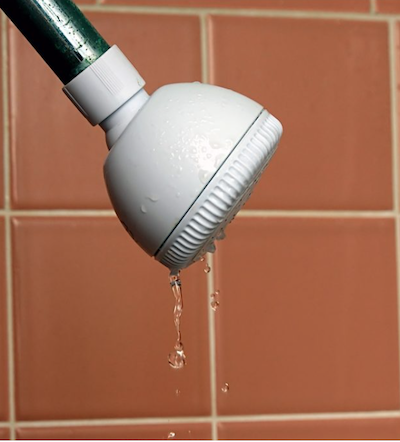What do you do if you don’t know what you’re doing?
By Troy Harrison
This week, I had to change the faucet cartridge in my shower. Now, I’m a pretty skilled amateur mechanic, and I have more tools than most non-professional mechanics. But I’m not a plumber and I had no idea how to do this. Heck, I didn’t even know that a single handle faucet HAD a cartridge, and that’s what caused the drip I was seeing. But, I knew what I didn’t know, so I did what people do nowadays. I went to YouTube. And I searched “how to fix leaky Delta shower faucet.”

I learned about the cartridge. I learned that Delta faucets have the most expensive cartridges, and by far the most expensive cartridge removal tools (a tool I didn’t know existed). And a couple of videos in, I learned a method to pull the cartridge even when you don’t have the tool. So, I tackled the job, and about 45 minutes later, I had a leak-free faucet. I was pretty happy – but then, the next day, I had a conversation that really irritated me.
This salesperson was a guy who was fairly new into our profession. By his own admission, there was a lot that he didn’t know about selling, and those things that he didn’t know were causing him a lot of challenges. Fair enough – many of us have that issue. So I asked him one of my favorite questions that I ask of salespeople:
“What’s the best sales book you’ve ever read?”
Here’s the thing – there’s no wrong answer to that question. I’m not fishing for compliments. Yeah, I like it if they’ve read my book, Sell Like You Mean it. But more than that, I’m looking for insight into how they develop their skills, and perhaps a window into their sales philosophy. All too often, the answer I get is the answer this guy gave me:
“I haven’t read any sales books.”
Wow. I’m in disbelief about how many professional salespeople have never dropped $20 on a book to teach them how to develop the skills to make a living. I’ve told this story before, but when I started my sales career at Laird Noller Ford in 1990, I read books on how to sell – and I wasn’t the only one. There were a few of us (probably about half of the new car sales staff) that bought and read books on how to sell, passed them around, and talked about them. Some of those books might have been awful (I still remember a couple of the car sales books that made me feel like I needed a shower), but we tried. We were interested in building our skills and getting better, and we worked at doing that.
In fact, one of those books that I bought 35 years ago, Carl Sewell’s "Customers For Life," is on my bookshelf to this very day. It’s still a damn good book. Some of it might be dated, but you have a hard time driving more than a few miles in Dallas without seeing a Sewell dealership, so it must have worked pretty well for Carl. In fact, I just Googled him, and he’s still around (82 years old).
But understand this. In 1990, there was no Google. There was no YouTube. There weren’t hundreds of blogs with thousands upon thousands of sales articles, and God knows how many thousands of videos on how to sell (I have over a hundred on my own YouTube channel, and frankly, I’m a slacker compared with a lot of people). And all of that knowledge is available for free.
And yet, all too many salespeople don’t take advantage of it. I’m not just talking about newbies – veterans need to keep polishing their skills, because buyers are changing and so are their demands upon salespeople. Sales has changed more in the last five years than in the previous hundred. You have to keep up.
I’ll be honest. It’s almost offensive to me when salespeople don’t keep learning their profession. I’ve been in sales for 35 years now. 27 years ago, I got my first job as a sales manager. And I’m coming up on my 21st anniversary as The Sales Navigator. And you know what? I’m still learning. I’m an avid reader, video watcher, and conference attendee. Back in April, I attended a conference for Speakers called “The Game Changers,” and one of the programs was an absolutely brilliant 45-minute session on LinkedIn by a guy named Richard Bliss. In two and a half weeks, I’ll hop on a plane for Vegas to spend two days in a LinkedIn program that he’s putting on. Why?
Because there are things I don’t know that I want to know. And those things could be crucial to my success.
If you’re not spending at least an hour a week on professional development, you’re falling behind. You’re cheating yourself, your customers, and your employer. Yeah, sometimes it’s hard to find that hour. I get it. But it’s harder to make up lost ground.
And the tools to learn are more prevalent than ever. You’re reading one of those tools, and there are over 500 more articles on this blog that are designed to help. Read me, read other people. See what works for you. And don’t be afraid to try new things.
I watched some videos, I tried something new, and now my faucet doesn’t leak. Don’t let your career become a leaky faucet that never stops dripping.












